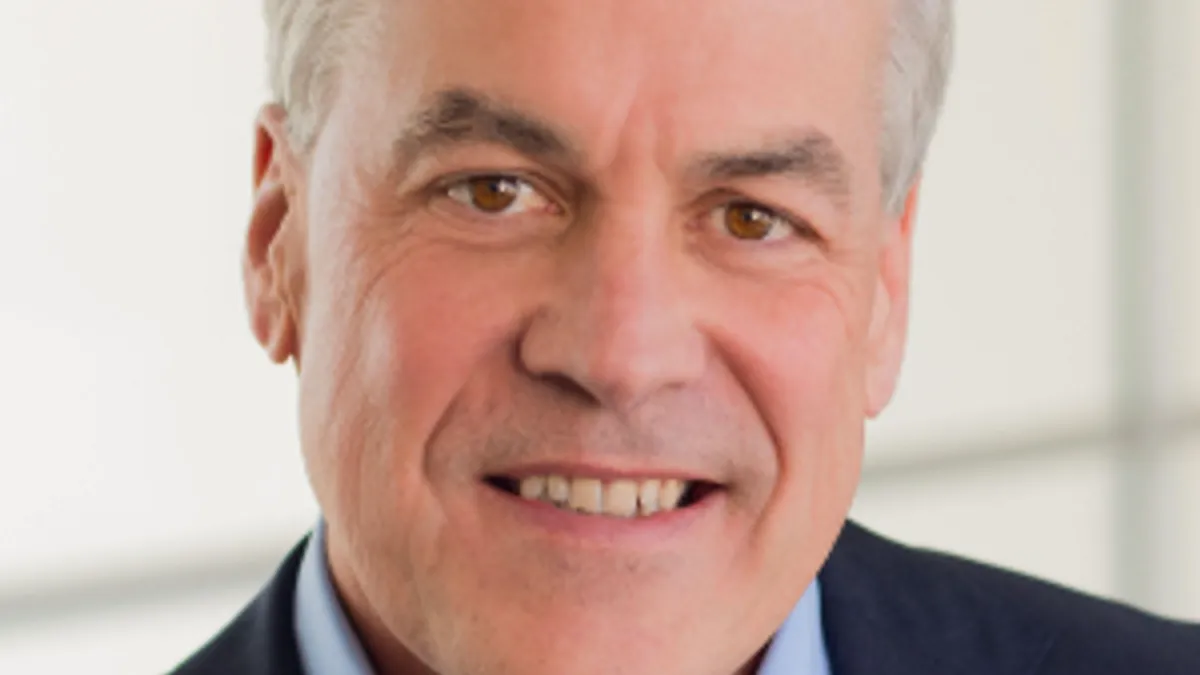Dive Brief:
- iRhythm Technologies CEO Mike Coyle stepped down Tuesday citing personal reasons just over four months after taking over, continuing the company's tumultuous 2021. The move is effective immediately.
- Current CFO Douglas Devine will become the interim CEO while the company searches for a permanent replacement, according to the announcement. Coyle will still consult for iRhythm as the company navigates recent reimbursement challenges. iRhythm's shares traded down by nearly 17% when the market opened Wednesday.
- Coyle's departure comes after a series of setbacks for iRhythm beginning in December when CMS passed on giving long-term cardiac monitoring services national Medicare pricing in a final rule, reversing course from the agency's proposed rule. Since Coyle took over mid-January, the company has seen Medicare rates for its primary service cut by about $200 and its stock price drop by roughly 73%.
Dive Insight:
Coyle replaced former CEO Kevin King, who was with the company for nine years, having previously worked for Medtronic as the executive vice president and president of the cardiovascular portfolio. Coyle said shortly after taking over that his international experience with Medtronic will help iRhythm as the company expands into new markets.
However, Coyle's brief tenure was defined by the Medicare pricing saga with Novitas Solutions, a Medicare Administrative Contractor. After CMS did not set a national price for long-term cardiac monitoring last December, the decision for price-setting was then passed on to the MACs.
Novitas originally posted rates for extended cardiac monitoring between $40-$50 in late January, well below the historical $311 range. The drastically cut rates shook industry and Wall Street analysts, and the company's stock price dropped by nearly 33% the day of the announcement.
During his first earnings call in February, Coyle said that iRhythm met with Novitas to talk about different pricing methodologies. However, Coyle was unable to say when, or if, any changes would be made.
The pricing challenges created uncertainty for a market that Wall Street analysts were consistently bullish on amid a trend of growing wearables use. The space even saw a flurry of deals where nearly all of iRhythm's competition was bought up by large medtechs like Philips and Boston Scientific.
Novitas ultimately set rates for shorter-term and longer-term cardiac monitoring at $103 and $115 in April, respectively, approximately one-third of historical rates. Coyle said on a company call that the new rates were below the costs to provide the services and higher rates would need to be set, either through another Novitas adjustment or, once again, trying to get national pricing through CMS.
Throughout the Novitas saga, iRhythm's stock price dropped from $252.65 Jan. 29 to $62 when the market opened Wednesday.
iRhythm said Coyle's decision to resign will not impact the reimbursement strategy going forward — the company will still pursue higher rates through Novitas, other MACs and CMS.
Analysts were surprised by Coyle's resignation.
Truist Securities analysts wrote that during a call with iRhythm management following the announcement, the company "made clear multiple times in our conversation that there have not been any notable developments since its earnings call (which was held in early May) related to reimbursement."
After speaking to iRhythm on Tuesday, J.P. Morgan analysts wrote "we shouldn’t expect an update on reimbursement before the release of the Physician Fee Schedule proposed rule in July/August."
J.P. Morgan and William Blair analysts still backed iRhythm for the long-term despite its recent challenges. William Blair analysts wrote that the company is still a leader of a cardiac monitoring market that is under 20% penetrated and valued at approximately $2 billion.
Despite the $13 million first-quarter hit from the rate cut, iRhythm grew revenue year over year by 17% to $74.3 million in the quarter. iRhythm's net losses for the quarter totaled $27.8 million, compared to a net loss of $9.1 million in the first quarter of 2020.












